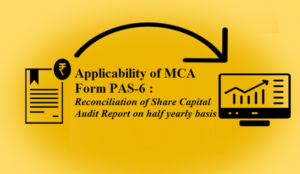As we all know that with the increase in the participation of various stakeholders in daily transactions of the company the government and the companies are taking many steps to increase degree of transparency in such transactions, to determine the exact financial position of the entity for this many rules and regulations are being introduced in various acts, standards has been made.
There are certain compliances that are to be made regarding the related party transactions Before starting to do the compliances of Related Party Transactions, a person must be aware about all the legislations, which govern the related party transactions. The following legislations govern the related party transactions: –
- Companies Act, 2013
- SEBI (Listing Obligation and Disclosure Requirement) Regulation 2015
- Accounting standards
- Meaning of related party
| As per section 2(76) of the companies act, 2013 | As per regulation 2(zb) of SEBI (LODR),2015 |
| with reference to a company, means— (i) a director or his relative; (ii) a key managerial personnel or his relative; (iii) a firm, in which a director, manager or his relative is a partner; (iv) a private company in which a director or manager 1[or his relative] is a member or director; (v) a public company in which a director or manager is a director 2[and holds] along with his relatives, more than two per cent of its paid-up share capital; (vi) any body corporate whose Board of Directors, managing director or manager is accustomed to act in accordance with the advice, directions or instructions of a director or manager; (vii) any person on whose advice, directions or instructions a director or manager is accustomed to act: Provided that nothing in sub-clauses (vi) and (vii) shall apply to the advice, directions or instructions given in a professional capacity; (viii) any body corporate which is— (A) a holding, subsidiary or an associate company of such company; (B) a subsidiary of a holding company to which it is also a subsidiary; or (C) an investing company or the venturer of the company | “related party” means a related party as defined under section 2 (76) of the Companies Act, 2013 or under the applicable accounting standards: Provided that any person or entity belonging to the promoter or promoter group of the listed entity and holding 20% or more of shareholding in the listed entity shall be deemed to be a related party. |
Types of Related Party Transactions
| As per section 188 of the companies act, 2013 | As per Regulation 2(zc) of the SEBI (LODR),2015 |
| (a) sale, purchase or supply of any goods or materials; (b) selling or otherwise disposing of, or buying, property of any kind; (c) leasing of property of any kind; (d) availing or rendering of any services; (e) appointment of any agent for purchase or sale of goods, materials, services or property; (f) such related party’s appointment to any office or place of profit in the company, its subsidiary company or associate company; and (g) underwriting the subscription of any securities or derivatives thereof, of the company: | “related party transaction” means a transfer of resources, services or obligations between a listed entity and a related party, regardless of whether a price is charged and a “transaction” with a related party shall be construed to include a single transaction or a group of transactions in a contract. |
Role of Audit Committee in Related Party transactions:
- All related party transactions shall require approval of the Audit Committee irrespective of the fact whether transactions entered into by the company are in ordinary course of business and on an arm’s length basis.
- Any transaction involving any amount not exceeding one crore rupees is entered into by a director or officer of the company without obtaining the approval of the Audit Committee and it is not ratified by the Audit Committee within three months from the date of the transaction, such transaction shall be voidable at the option of the Audit Committee and if the transaction is with the related party to any director or is authorised by any other director, the director concerned shall indemnify the company against any loss incurred by it.
- The audit committee shall review, at least on a quarterly basis, the details of related party transactions entered into by the listed entity pursuant to each of the omnibus approvals given. Reg 23(3)(d) of SEBI (LODR),2015.
- Omnibus approval shall be valid for a period not exceeding one financial year and shall require fresh approval after the expiry of such financial year. Reg 23(3)(e) of SEBI (LODR),2015.
RELATED PARTY TRANSACTIONS WHICH ARE NOT IN ORDINARY COURSE OF BUSINESS AND ARM’S LENGTH BASIS
| S.No. | Related party transactions which are not in ordinary course of business and arm’s length basis | Board Approval | Shareholders’ approval by way of an ordinary resolution, if | |
| 1. | sale, purchase or supply of any goods or materials | Required | If amount exceeds ten percent of the turnover of the company or rupees one hundred crore, whichever is lower | |
| 2. | selling or otherwise disposing of, or buying, property of any kind | Required | If amount exceeds ten percent of the turnover of the company or rupees one hundred crore, whichever is lower | |
| 3. | leasing of property of any kind | Required | If amount exceeds ten percent of the turnover of the company or rupees one hundred crore, whichever is lower | |
| 4. | availing or rendering of any services | Required | availing or rendering of any services, directly or through appointment of agent, exceeding ten percent of the turnover of the company or rupees fifty crore, whichever is lower | |
| 5. | appointment of any agent for purchase or sale of goods, materials, services or property | Required | sale, purchase or supply of any goods or material, directly or through appointment of agent, exceeding ten percent. of the turnover of the company or rupees one hundred crore, whichever is lower | |
| availing or rendering of any services, directly or through appointment of agent, exceeding ten percent of the turnover of the company or rupees fifty crore, whichever is lower. | ||||
| Selling or disposing of or buying property of any kind, directly or through appointment of agent, exceeding ten percent of net worth of the company or rupees one hundred crore, whichever is lower. | ||||
| 6. | such related party’s appointment to any office or place of profit in the company, its subsidiary company or associate company | Required | for appointment to any office or place of profit in the company, its subsidiary company or associate company at a monthly remuneration exceeding two and a half lakh rupees | |
| 7. | underwriting the subscription of any securities or derivatives thereof, of the company | Required | for remuneration for underwriting the subscription of any securities or derivatives thereof, of the company exceeding one percent of the net worth | |
NOTE : The turnover or net worth referred in the above table shall be computed on the basis of the audited financial statement of the preceding financial year.
Disclosure requirements:
- The agenda of the Board meeting at which the resolution is proposed to be moved shall disclose-
- The name of the related party and nature of relationship;
- The nature, duration of the contract and particulars of the contract or arrangement;
- The material terms of the contract or arrangement including the value, if any;
- Any advance paid or received for the contract or arrangement, if any;
- The manner of determining the pricing and other commercial terms, both included as part of contract and not considered as part of the contract;
- Whether all factors relevant to the contract have been considered, if not, the details of factors not considered with the rationale for not considering those factors; and
- Any other information relevant or important for the Board to take a decision on the proposed transaction.
- The explanatory statement to be annexed to the notice of a general meeting convened pursuant to section 101 shall contain the following particulars, namely: –
- name of the related party;
- name of the director or key managerial personnel who is related, if any;
- nature of relationship;
- nature, material terms, monetary value and particulars of the contract or arrangements;
- any other information relevant or important for the members to take a decision on the proposed resolution.
- Disclosure in the Board’s Report (in Form AOC-2) which inter alia includes:
-Reference of contract or arrangement with related parties;
-Justification for entering into such a contract or arrangement; and
-Additional disclosures as per the Accounts Rules.
Disclosure as per SEBI (LODR)
- The listed entity shall submit within 30 days from the date of publication of its standalone and consolidated financial results for the half year, disclosures of related party transactions on a consolidated basis, in the format specified in the relevant accounting standards for annual results to the stock exchanges and publish the same on its website.
- Policy on dealing with RPTs to be disclosed on website and a web link thereto shall be provided in the annual report;
- Details of all material transactions with related parties shall be disclosed quarterly along with the compliance report on corporate governance.
Disclosure as per Accounting Standards
- Name of related party;
- Nature of relationship;
- Nature of the transaction;
- Amount of transaction
- Volume of the transaction;
- Any other elements necessary for understanding the financial statements;
- Amounts outstanding and provision for doubtful debts;
- Amounts written off or written back; and
- Remuneration paid to KMPs.




